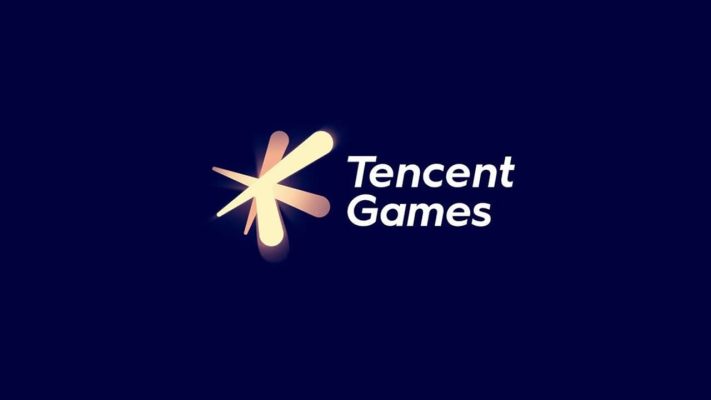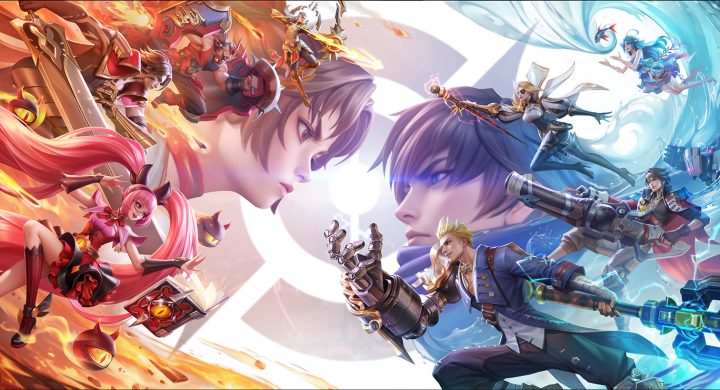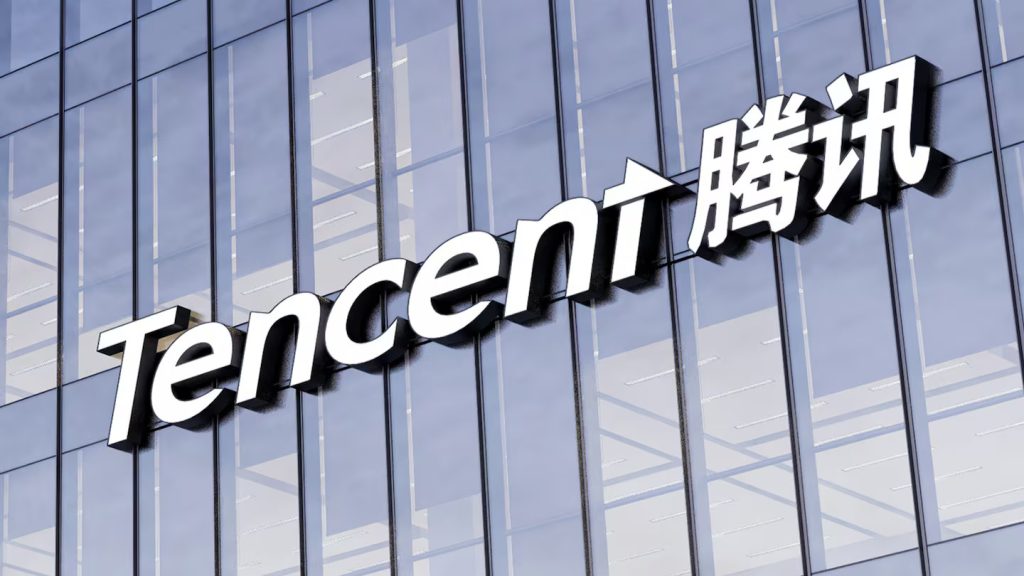When it comes to tech giants, some names instantly come to mind – Google, Apple, Amazon. However, one company, Tencent, is perhaps lesser-known yet holds a level of influence that rivals them all. Founded in China, Tencent has grown into a powerhouse that touches nearly every corner of the tech industry, from social media and gaming to cloud computing and beyond. Tencent began from a little-known startup in the late ‘90s to a globally influential entity worth hundreds of billions. Let’s get into the roots, growth, and impact of one of the largest – and perhaps most under-the-radar – tech titans the world has ever seen.
The Beginnings
Tencent’s journey began in 1998, a year when the internet was barely on China’s radar. Ma Huateng (known as Pony Ma) and Zhang Zhidong, former classmates with a shared dream, started the company with a single idea – to bring real-time communication to Chinese users. Their vision was inspired by ICQ, an Israeli-developed instant messaging service that had taken off in the West. Driven by this concept, they launched their own messaging app called “OICQ” (Open ICQ), which was free and easy to use.

In those early days, they faced steep competition and even near-bankruptcy, struggling to keep their fledgling app alive. Yet OICQ, with its user-friendly design, struck a chord with Chinese users. Within months, it had gained a loyal following, providing Tencent with the traction it needed to survive and grow. By the early 2000s, OICQ had evolved into QQ, an upgraded platform that would become China’s most popular messaging service. This transformation marked Tencent’s first big breakthrough, allowing it to diversify and experiment with revenue models, something that would become a hallmark of Tencent’s business strategy.
Early Struggles and Triumphs
Despite QQ’s runaway success, Tencent faced the immense challenge of monetising a service that was, by necessity, free. It was a rocky road, with the company almost folding under the pressure of costly server expenses and operational demands. However, Tencent found a breakthrough in a subscription model, introducing value-added features that allowed users to customise their avatars, purchase virtual items, and upgrade their status within QQ. This “freemium” model turned QQ from a popular app into a revenue machine, giving Tencent the breathing room to continue expanding.
Once it had secured a steady revenue stream, Tencent quickly diversified. Beyond messaging, the company ventured into music streaming, online gaming, and e-commerce. These moves were bold, but they paid off – Tencent was now on its way to becoming a diversified digital empire, connecting Chinese users with services across entertainment, communication, and beyond.
Tencent’s Gaming Empire
Tencent’s pivot into gaming was nothing short of revolutionary. While its earliest moves were tentative, Tencent didn’t take long to see gaming as a primary pillar of its business. In 2004, Tencent launched its first online gaming platform, entering a competitive market still in its infancy in China. Realising it could accelerate growth by acquiring established gaming studios, Tencent soon began snapping stakes in leading game developers.

One of Tencent’s biggest wins came in 2011 with its acquisition of Riot Games, the studio behind League of Legends. This deal gave Tencent a direct line to one of the world’s most popular games and marked the beginning of a series of strategic gaming investments. Over the years, Tencent has acquired stakes in major gaming companies like Epic Games (creators of Fortnite), Supercell (known for Clash of Clans), and Activision Blizzard. This gaming empire has cemented Tencent as the largest gaming company globally in terms of revenue.
What sets Tencent Games apart is its ability to span genres and platforms. From mobile games like Honor of Kings and PUBG Mobile to AAA titles on consoles and PCs, Tencent has reshaped the gaming world by making it accessible to players across devices. Through this approach, Tencent has built a massive revenue stream and become a cultural force, connecting millions of players worldwide.
Tencent’s Global Investments and Partnerships
Tencent’s growth hasn’t been confined to China; it’s steadily expanded its influence across the world. In the last decade, Tencent has invested in a slew of companies across North America, Europe, and Southeast Asia. These investments span a diverse range of industries – from Tesla, the electric vehicle giant, to Spotify, Snap Inc. (parent company of Snapchat), and even global e-commerce brands. Through these partnerships and acquisitions, Tencent has embedded itself in the heart of the international tech landscape, influencing the direction of multiple sectors.
Rather than taking full ownership, Tencent often pursues a “strategic partnership” model by acquiring minority stakes in companies. This approach lets Tencent gain insights and build a presence in foreign markets while respecting local culture and regulations. It’s a diplomatic yet powerful strategy, allowing Tencent to benefit from the expertise and influence of these companies without exerting outright control.
Also Read : How Big Is The Tata Group?
Building the Tencent Ecosystem – WeChat and Beyond

Beyond gaming and investments, Tencent’s ecosystem extends to social media, cloud services, and even financial technology. WeChat, Tencent’s iconic “super app,” is arguably the crown jewel of its ecosystem. What started as a simple messaging platform has evolved into an all-in-one digital hub, where users can communicate, shop, pay bills, manage investments, and more. In China, WeChat is essential to daily life, used by over a billion people each month for tasks as varied as chatting with friends to booking doctor appointments.
Tencent’s presence in cloud computing, via Tencent Cloud, is another part of its growing ecosystem. Competing with major players like Amazon Web Services and Alibaba Cloud, Tencent has quickly established itself as a major player in cloud infrastructure. As more companies and organisations turn to digital solutions, Tencent Cloud stands to benefit immensely from this shift.
In addition to cloud computing, Tencent has delved into AI, fintech, and even healthcare technology. The company has developed an impressive range of AI-driven tools, from facial recognition and language translation to autonomous driving technology. These projects are part of Tencent’s broader vision: to shape the future of technology in ways that impact not only entertainment and communication but also daily life.
The list of some of the games and companies Tencent have ownership in:

- Riot Games – 100% ownership, League of Legends and Valorant developer.
- Supercell – 84.3% ownership, known for Clash of Clans, Clash Royale, and Brawl Stars.
- Epic Games – 40% stake, developer of Fortnite and the Unreal Engine.
- Krafton (formerly Bluehole) – 11.5% stake, known for PUBG and its mobile version.
- Miniclip – Majority stake, platform known for casual games like 8 Ball Pool.
- Activision Blizzard – 5% stake, responsible for Call of Duty, World of Warcraft, and Overwatch.
- Grinding Gear Games – 80% ownership, developer of Path of Exile.
- Fatshark – 36% stake, developer of the Warhammer: Vermintide series.
- Ubisoft – 5% stake, known for Assassin’s Creed, Far Cry, and Tom Clancy series.
- Take-Two Interactive – Tencent has a partnership to release NBA games in China.
- Smilegate – Tencent publishes Crossfire in China, one of the most popular FPS games globally.
- Nexon – Tencent expressed interest in acquiring this company, which owns MapleStory and Dungeon Fighter Online, though a formal acquisition has not occurred.
Valuation
Tencent’s massive expansion and diversification have translated into a valuation that rivals some of the world’s biggest companies. At its peak, Tencent’s market capitalisation soared past $900 billion, making it one of the most valuable companies on the planet. Although its valuation has seen fluctuations, particularly in response to China’s shifting regulatory landscape, Tencent remains one of the world’s largest tech companies. This valuation is a testament to Tencent’s resilience and adaptability. Despite regulatory challenges and market pressures, the company has continued to thrive, showing an ability to adapt its business model to keep it aligned with user needs and government expectations.

Currently, Tencent is valued at an astounding ₹42.610 trillion (~$500 billion), making it the world’s 18th most valuable company by market cap. This valuation reflects not only Tencent’s prowess in tech but also its influence across gaming, social media, and cloud computing. Despite recent regulatory challenges in China, Tencent continues to adapt and expand globally.
Tencent’s smash-hit Honor of Kings, previously exclusive to China, went global in 2024. With millions of players worldwide, it’s quickly becoming one of the most-played mobile games globally. However, you may remember that Tencent’s apps were banned in India in 2020 due to national security concerns. So, how did they return? Well, in a strategic move, Tencent re-entered the Indian market through its global game publishing arm, Level Infinite, based in Singapore and Amsterdam. Three years after being forced to withdraw, Tencent is making a comeback, albeit cautiously, to reconnect with the Indian gaming audience.
What’s Next for Tencent?
Looking forward, Tencent shows no signs of slowing down. The company has its sights set on next-generation technologies, from the metaverse to advanced AI and virtual reality. Its investments in gaming, digital finance, and cloud computing all point to an ambition to lead the charge in emerging technologies and expand its influence in new areas.
Tencent’s global footprint is a testament to its remarkable journey from a local tech startup to an international powerhouse. By blending innovation, diversification, and strategic investments, Tencent has conquered the Chinese market and established itself as a formidable player in the global arena. Its influence spans continents, industries, and technologies, making it one of the most powerful and versatile companies in the world today.
In the end, asking “How big is Tencent?” is like asking how big the future of technology itself can be. With its unyielding vision and unmatched reach, Tencent is undoubtedly a force that will continue to shape the tech landscape for years to come.


